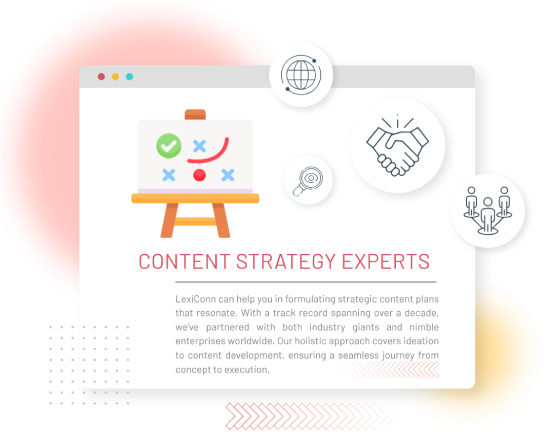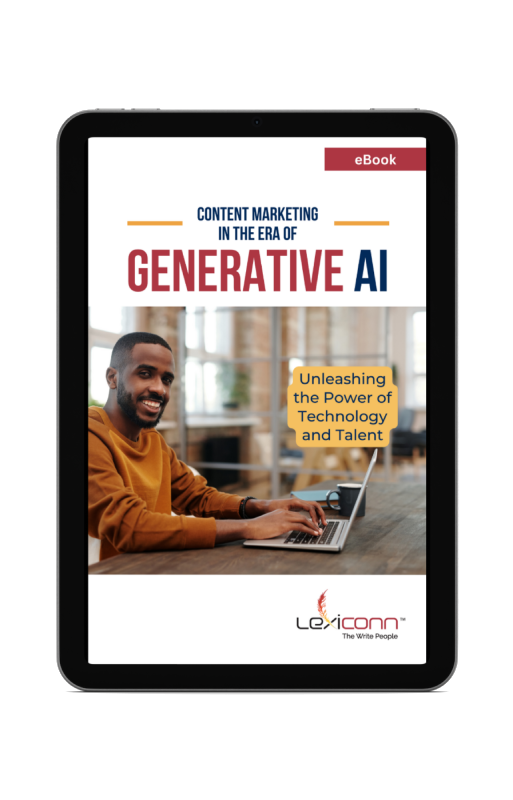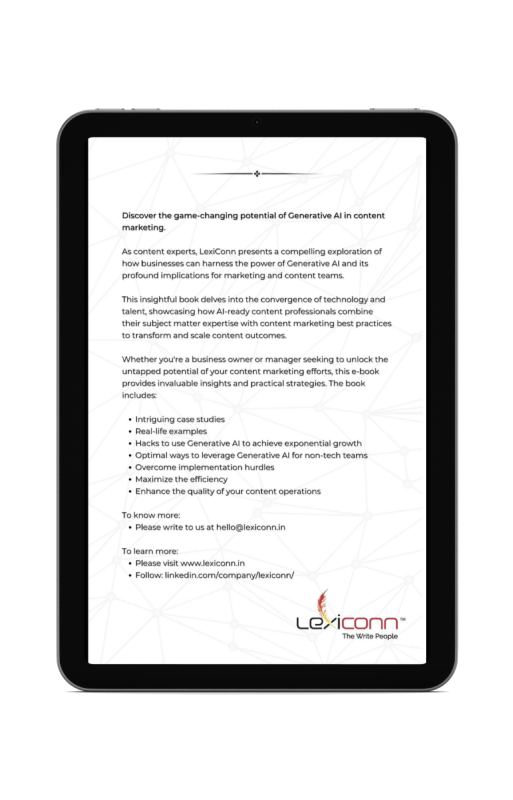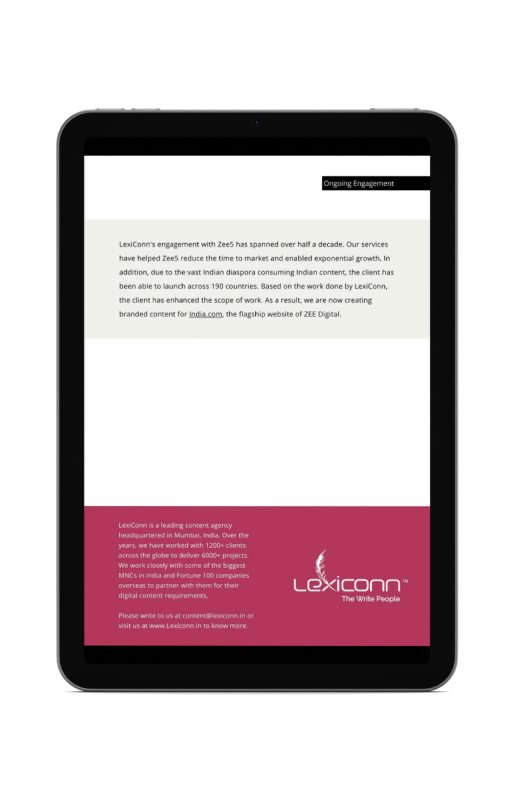
Imagine this: It’s Monday morning, and Sarah, a marketing manager at a mid-sized B2B tech company, is staring at her overflowing to-do list. She needs to publish a blog post, schedule social media updates, analyze last week’s campaign performance, and prepare for an upcoming webinar. The clock is ticking, and the pressure is mounting. Sound familiar? For many B2B marketers, this is the reality of managing a content strategy in today’s fast-paced digital landscape. But what if there was a way to streamline these tasks, reduce the workload, and still deliver high-quality, impactful content? Enter AI and automation.
In recent years, AI and automation have emerged as game-changers for businesses looking to elevate their B2B content strategy. These technologies are not just buzzwords—they are powerful tools that can help marketers work smarter, not harder. From generating content ideas to personalizing customer experiences and optimizing SEO, AI, and automation are reshaping the way businesses approach content marketing. But how exactly are they doing this? And more importantly, how can you leverage these technologies to stay ahead of the competition?
In this blog, we’ll dive deep into the transformative power of AI and automation in content strategy. We’ll explore real-world examples, share actionable insights, and provide practical tips to help you harness these technologies for your business. Whether you’re a seasoned marketer or just starting out, this guide will show you how to use AI and automation to create a more efficient, effective, and engaging content strategy.
Gone are the days when content creation was a purely manual process. Today, AI-powered tools like ChatGPT, Jasper, and Writesonic are helping marketers generate high-quality content in a fraction of the time. These tools use natural language processing (NLP) to create blog posts, social media captions, and even email newsletters that resonate with your target audience.
For example, a B2B SaaS company can use AI to draft whitepapers or case studies, freeing up their team to focus on strategy and creativity. While AI-generated content still requires human oversight, it significantly reduces the time and effort needed to produce consistent, high-quality output.
AI-driven content tools can also assist with localization and translation, making it easier for businesses to reach global audiences. Platforms like DeepL and Google Translate provide instant translations while retaining context and tone, allowing brands to expand their reach without investing in dedicated translation teams.
One of the biggest challenges in B2B content strategy is delivering personalized experiences to a diverse audience. AI makes this possible by analyzing user behavior, preferences, and engagement patterns to tailor content to individual needs.
For instance, tools like HubSpot and Marketo use AI to segment audiences and deliver personalized email campaigns. By leveraging data such as past interactions, purchase history, and browsing behavior, these platforms ensure that the right message reaches the right person at the right time. This level of personalization not only boosts engagement but also drives conversions.
Beyond email, AI-powered recommendation engines like those used by Netflix and Amazon help businesses suggest relevant content to users based on their previous interactions. This approach enhances user experience and increases the likelihood of conversions in a B2B setting.
AI-powered predictive analytics tools are transforming how businesses plan and execute their content strategies. By analyzing historical data and identifying trends, these tools can predict what type of content will perform best in the future.
For example, a B2B marketing team can use predictive analytics to determine the optimal time to publish a blog post or the most effective topics to cover. This data-driven approach eliminates guesswork and ensures that every piece of content is aligned with audience preferences and business goals.
Additionally, sentiment analysis tools powered by AI can assess audience reactions to different content pieces, helping marketers fine-tune their messaging for better engagement.
Creating great content is only half the battle; distributing it effectively is equally important. Automation tools like Hootsuite, Buffer, and Sprout Social allow businesses to schedule and publish content across multiple platforms with ease.
For B2B companies, this means reaching their target audience on LinkedIn, Twitter, and other relevant channels without the need for manual intervention. Automation also enables A/B testing, allowing marketers to experiment with different headlines, visuals, and posting times to maximize engagement.
AI-powered social listening tools like Brandwatch and Mention help brands track conversations around their industry and identify opportunities to engage with prospects in real time.
Search engine optimization (SEO) is a critical component of any B2B content strategy, but it can be time-consuming and complex. AI-powered tools like Surfer SEO, Clearscope, and SEMrush simplify the process by providing real-time recommendations for keyword usage, content structure, and backlink opportunities.
For example, these tools can analyze top-performing content in your industry and suggest improvements to help your blog posts rank higher on search engines. By automating SEO tasks, businesses can focus on creating valuable content while ensuring it reaches the right audience.
AI-driven content scoring tools like MarketMuse evaluate content quality before publishing, ensuring it meets SEO and readability standards.
Measuring the success of your content strategy is essential for continuous improvement. Automation tools like Google Analytics, Tableau, and DashThis provide real-time insights into key performance metrics such as page views, bounce rates, and conversion rates.
For B2B marketers, this data is invaluable for understanding what’s working and what’s not. By automating performance tracking, businesses can quickly identify areas for improvement and adjust their strategy accordingly.
AI-powered tools like ChatGPT-based sentiment analysis can evaluate audience responses, helping brands refine messaging and tone for future campaigns.
AI enables businesses to repurpose existing content efficiently. Tools like Lumen5 convert blog posts into engaging videos, while Copy.ai can summarize long-form articles into bite-sized social media snippets. This approach maximizes content reach and extends the lifecycle of valuable assets.
AI chatbots like Drift and Intercom provide real-time engagement by answering customer queries, recommending content, and guiding prospects through the sales funnel. These bots offer 24/7 support, improving customer experience and freeing up human resources for more complex tasks.
Netflix is a prime example of how AI can enhance content strategy. By analyzing user data, Netflix delivers personalized recommendations that keep viewers engaged and coming back for more. B2B companies can adopt a similar approach by using AI to recommend relevant blog posts, whitepapers, or case studies to their audience.
Spotify uses AI to create personalized playlists based on user preferences and listening habits. B2B marketers can take inspiration from this by using automation tools to curate content hubs or newsletters tailored to individual interests.
HubSpot’s AI-powered email marketing platform allows businesses to automate personalized email campaigns. By segmenting audiences and delivering targeted messages, HubSpot helps B2B companies nurture leads and drive conversions.
While AI can generate content efficiently, maintaining a human touch is essential. AI tools should be used to enhance human creativity rather than replace it. Businesses should establish clear guidelines to ensure AI-generated content aligns with their brand voice and values. Regular reviews and human oversight help refine AI output, ensuring it remains engaging and relatable.
AI-driven content should also be transparent. Readers value authenticity, and businesses should disclose when content is AI-assisted while emphasizing human involvement in strategic messaging. Thoughtful AI integration can boost productivity without compromising quality.
AI-driven content strategies must comply with data privacy regulations like GDPR and CCPA. Businesses should implement strict data governance policies, ensuring that AI tools handle customer information responsibly. Educating teams on ethical AI practices and data security is crucial to maintaining trust and compliance.
Additionally, businesses should be mindful of algorithmic bias, ensuring AI-generated content remains inclusive and unbiased. Bias can creep into AI models due to imbalanced training data, so continuous monitoring and updating of AI systems are necessary. Leveraging diverse datasets and human oversight helps mitigate potential biases, ensuring content is fair and representative of all audience segments. Ethical AI adoption builds credibility and strengthens audience relationships, reinforcing trust in AI-assisted content strategies.
AI’s role in content marketing will continue to grow, with advancements in:
At LexiConn, we specialize in helping B2B companies leverage AI and automation to enhance their content strategy. As a leading content marketing agency in Mumbai and a trusted content writing agency in India, we offer a range of services, including:
Visit us at www.lexiconn.in or drop us a line at [email protected] to learn more about our services. We also offer a free 30-minute content consultation session to help you get started. Book your session now.



I have read and accept the Privacy Policy
Read More